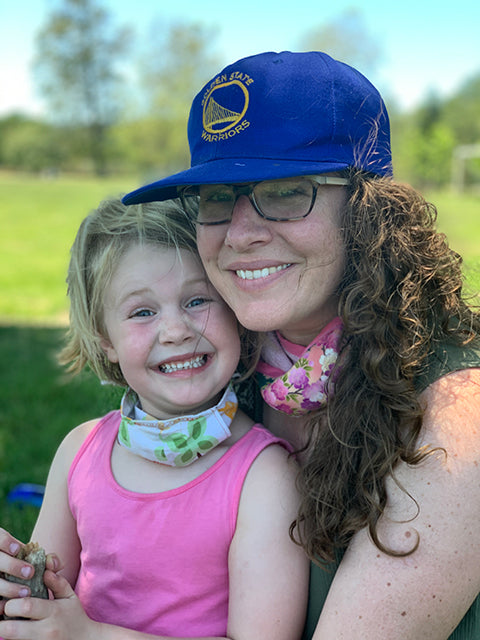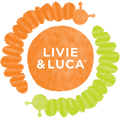Growing Little Changemakers: How do we Raise Antiracist Children?

Our last two Facebook lives have explored the topic of antiracism and how to activate it in ourselves and in our children. Today, on Juneteenth, we wanted to share some thoughts and tips from these conversations that we found incredibly helpful to incorporate into our daily lives.
Last week Mitzi talked with her daughter, Maya, and this week with 4th-grade teacher, Jessica Walker, mother of two, and anti-racist educator and advocate and not surprisingly, similar themes came up in both conversations.
What are some things we can do?
- Acknowledge our differences. According to research babies from 6-months-old are able to recognize differences in appearance and skin color. Although we might not talk about it or feel that we are color-blind, it still registers in our minds and we make associations. So Jessica advises that it’s useful to address these things aloud, to name skin colors to our small children, and just acknowledge that there are differences. When children get older we can talk about what these differences mean in our society. Board book recommendation: Shades of Black by Sandra L. Pinkney.
- Included/Excluded. Jessica recommends talking from an early age about the concept of “included/excluded.”Who is being included or excluded in this particular picture/story? Whose story am I not telling? What might their story be or how do I find out their story?
- Identify Whiteness Historically. If you’re reading a book about Rosa Parks, for example, ask questions about who else was involved behind the scenes and what were they doing? What laws were white people making that made it so Rosa Parks felt compelled to act?
Related to both of the last two points: Jessica and Maya each talked about the concept of fairness that most children have. They are able to recognize and call out unfairness in a story if all the facts are given. Giving the WHOLE truth about a story empowers a child to decide what is fair.
- Exposure. Jessica talked about the diverse role models that her children have had in their early childhood education. Maya expressed the benefits of having people from all over the world be a part of their family, being exposed to different cultures and types of people. How can we seek these out for ourselves and our family? How can we bring the perspective of others into our lives? If it isn’t possible to actually expose your child to many different types of people, you can provide books about people of different races or from other cultures, including ones with positive and hopeful messages.
- Blind Spots: Our blind spots get revealed when we become parents. When we make mistakes or a blind spot is revealed, is when we grow and mend. Let’s not be afraid to admit mistakes and be vulnerable with our children.
Questions to explore on your own (resources below):
- What is whiteness and what is its history?
- What materials/experiences can I give my child to give them the confidence to become a changemaker?
- What skills and content area would I like to learn more about?
For example, discriminatory thought patterns/ how to engage in confrontation to call out antiracism/the history of whiteness

Resources from Jessica:
Talking to Children After Racial Incidents, featuring author Howard Stevenson, an expert on racial stress and trauma.
Seeing White podcast series from Scene On Radio, an exploration of how whiteness was created and upheld
How to talk to young children about the BLM guiding principles by Laleña Garcia
Talking to kids about race, from National Geographic, includes advice for very young children.
Beyond the Golden Rule: A Parent’s Guide to Preventing and Responding to Prejudice, a toolkit from Teaching Tolerance that spans ages 2-17.
Your Age-by-Age Guide to Talking About Race, from 6 months to age 8, from Parents Magazine.
Race Talk: Engaging Young People in Conversations about Race and Racism, from the Anti-Defamation League.
How to Talk About Kids and Race from Brightly, by Olugbemisola Rhuday-Perkovich, full of studies, citations, and resources.
Even Babies Discriminate: A Nurture Shock Excerpt by Po Bronson and Ashley Merryman.
Study about racial bias in babies from the University of Toronto.
Stages of Racial Identity Development by Louise Derman-Sparks, anti-bias educator.
Racial Identity Development During Childhood, a study by the University of Pennsylvania.
What White Children Need to Know About Race, by Ali Michael and Eleanora Bartoli of NAIS (The National Association of Independent Schools), is about the particular need for white parents to talk to their children about race.
We Need More White Parents to Talk to Their Kids About Race. Especially Now by Chandra White-Cummings.
Teaching Young Children About Race, by Louise Derman-Sparks and Julie Olsen Edwards, is about creating a rich anti-bias environment for children.
From NPR’s Life Kit podcast, Talking Race With Young Children also has a wealth of resources and advice on its episode page.
A large list of other resources from the Center For Racial Justice In Education.
A few books: Me & White Supremacy by Layla Saad, So You Want to Talk About Race by Ijeoma Oluo, How to be an Antiracist by Ibram X. Kendi, White Fragility by Robin DiAngelo


Leave a comment